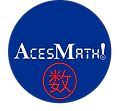Tips for IB TOK 2022
- loocheewee84
- Mar 23, 2022
- 3 min read
Hello everyone!
TOK season is upon us and below is a commentary on all six TOK questions from our tutor Ashleigh on the various Areas of Knowledge (AOK) spheres and points to consider!
1. Within an area of knowledge is it more important to have credibility or power? Discuss with reference to the natural sciences and one other area of knowledge.
Possible AOKS; the arts,human sciences, history, ethics
Points to consider; explore the similarities and differences between credibility and power. Pay attention to how credibility may not equate to power and vice versa. In the natural science, power could be given to those who have a deep understanding of that realm whereas credibility is usually associated with trust and can be seen when a leader convinces his followers to conform to an ideology or invade a country (history).
2. If pushed too far, can open-mindedness itself become restrictive? Discuss with reference to two areas of knowledge.
Possible AOKS; The Natural Sciences,The Human Sciences,Mathematics, Religious Knowledge Systems
Points to consider; define open-mindedness and restrictive. One can be open minded and consider many mathematical formulas or constructs when understanding the world. But when one chooses not to conform to one or use one in particular as a guiding light, they may become confused and lost in their thoughts, therefore becoming restricted as they cannot advance in their understandings.
3. Is it better to “have questions that can’t be answered than answers that can’t be questioned” (adapted from Richard Feynman)? Discuss with reference to mathematics and one other area of knowledge.
Possible AOKS; The Natural Science, Mathematics, Ethics, Indigenous Knowledge Systems
Points to consider; Define “have questions that can’t be answered than answers that can’t be questioned”. Go about explaining how these two clauses are different. When “questions cant be answered”, it is suggestive that there are many unknowns in which the knower would endeavour to explore and gain a deeper appreciation of the world.However, if “answers can't be questioned” it implies that the knowledge is set in stone and will not change, despite being “unquestionable” to an extent. 4. Why do we seek indisputable evidence when it is so often unattainable? Discuss with reference to two areas of knowledge.
Possible AOKS; Mathematics, The Natural Sciences, History, Religious Knowledge Systems
Points to consider; define indisputable and unattainable. When it is indisputable does it make it accurate or does it just mean that everyone can agree on it. This brings in factors such as accuracy but also the reliance on the human and personal experience. It can be indisputable when everyone agrees on it but it can be unattainable because others may have their own experiences that differ and therefore there would be a dispute. For everyone to agree the evidence needs to be sound but how can it be if everyone relies on their own evidence?
5. To what extent do you agree with the directive to “measure what is measurable and make measurable what is not so” (Galileo Galilei)? Answer with reference to the human sciences and one other area of knowledge.
Possible AOKS; Human Science, The Natural Sciences, Mathematics
Points to consider; The term “measure” brings to mind the natural science and mathematics which would make a great comparison to the human sciences. The quote itself seems to allude to the notion of making everything to conform to the same unit of measurement, compressing it into a rigid box. However the Human Sciences deals with the uniqueness of human ingenuity. For example, mental health varies across a wealth of individuals and must be handled differently from one person to another, therefore making it unmeasurable.
6. If the artist has freedom to interpret past events in ways that are denied to the historian, is this an asset or an obstacle to our understanding of the past? Discuss with reference to the arts and history.
Possible AOKS; Art and History
Points to consider; Art and History are perfect for this as they are both rich in historical development. In terms of understanding our past, considering various perspectives is important to gain a more holistic interpretation of our past but when too many opinions arise, it may deviate from the “truth” and give rise to inaccuracies rather than understanding. Between history and art, Art definitely involves movements that were guided by trends and emotions, whereas history is more rooted in events and political changes.
.png)